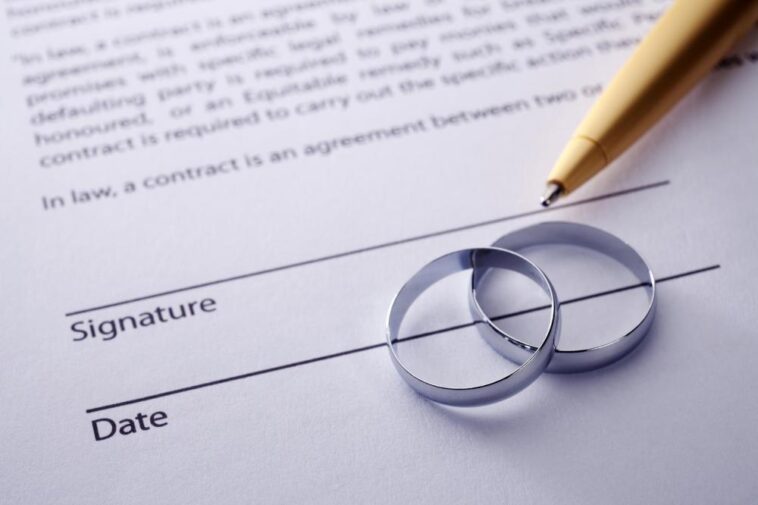A divorce is likely not something that crossed your mind when planning one of the biggest days of your life. It is something that most couples don’t prepare for and trust their partners with everything they have in life to serve with. However, when a circumstance like this hits, one person in the relationship may end up taking more and leaving the other with pennies to survive on.
For this reason, whether you have children to support or not, you must protect your money and take it with you from the divorce case. If there are more joint accounts and assets with divided shares, a divorce can become complicated and messy easily. In order to face any challenge, here are some important tips to protect yourself in a divorce matter entirely:
1. Get Educated

As not every married individual thinks of the odds of divorce after marriage, the chances are that you may not know much about the process and its sensitivities. So it’s best to start by gaining some knowledge. No one can give you better advice than yourself and perhaps a reliable divorce lawyer who is experienced. As divorce is really common these days, you may have a divorced friend in your group who can give you tips. Specifically, look for information that involves gaining financial strength in the case and the best outcome in this area.
2. Divide Assets
The assets that you brought into the marriage and ones that were created during it by you are yours to take. Never relinquish assets that you completely or partially invested in. Create a list of all these and supporting evidence to claim in court. Even if you weren’t involved in buying the assets, you would have some portion to yourself that you get to take when dividing the assets. Make sure to not leave anything due to guilt for your ex-partner or your ego and then not be able to live a resourceful life.
3. Distribute Debt to the Owed

A piece of expert advice on saving yourself during a divorce splitting assets and cash is to divide the debt nicely. This is important to steer clear of any unethical move from your partner toward the debt in your joint accounts accumulated. The best thing to do is act fast and get rid of the debt, then close the account or, better yet, divide the debt fairly into individual accounts. This practice will help you navigate away from chances of your ex-spouse dumping the debt on you to pay with whatever is left of your inheritance.
4. Be Logical with Taxes
Taxes can be the most painful after the assets and other financial resources are divided as one individual has to pay more and reduce their acquired means. For this reason, it’s best to identify the amount of tax you’ll have to pay for the asset you want to get from the divorce, and if you will receive alimony, how much will it get cut after-tax implications on the payee. Tax implications can decrease your collection greatly, so it’s better to calculate costs before signing up for anything.
5. Gather Your Papers

During a divorce, important things that you own, including your house, car, financial assists, and important papers everything can get disarrayed. As the case gets complicated, you may be asked to bring evidence in the form of records like the marriage contract, educational papers, birth certificates, etc.
These can also include financial documents and statements, like wills, titles, and bank statements, and so on. And if you happened to have misplaced any of these records or your spouse gets their hands on them, you may get held back at a rightful compensation. Ensure to store these papers safely before filing the case and make several copies of important and joint assets documents to provide to your spouse as well.
6. Stick to the House
Among all the possessions and properties, whether shared or individual, the family house is the most important piece of the puzzle. The good news is that the one whose name the house is on or paying the mortgage payments doesn’t have the right to keep the home. However, if you want to keep the family house for you and your kids to have a safe place, you need to notify the land registry and the court of your need to occupy the site.
An additional notification can also be sent to exclude an abusing or disturbing spouse out of the house through an order from the court. This order can help you live in peace, at least until the case is resolved and the house is awarded to one party.
7. Take Extra Precaution with Violence Issues

Due to divorce cases, numerous domestic violence cases are also prevalent. However, the violent side of the relationship isn’t disclosed by every victim in their relationship, which creates complications later. The predator party may try to increase violence or severely harm other people in the household receiving news of divorce filing. Therefore, it’s best to get help with the violence issue with the divorce and inform your lawyer and everyone involved to help you get to safety first. Your lawyer will help you get a restraining order and other necessary precautions taken for surveillance and protection of your household from the abusing spouse.
8. Get Support
After you have decided to get a divorce from your spouse, you must be prepared and willing to fight for your protection during and after the process. Be it getting your children to stay with you, obtaining the house, keeping your assets, etc., provide clear instructions to your lawyer and fight till the end. Similarly, if you happen to be unemployed or lower in acquisitions and other financial holdings than your spouse, you should acquire alimony and child support.
Discuss with your attorney and devise a workable amount for both kinds of support that you want your spouse to provide for a set period of time until you can get back on your feet and take care of yourself and the kids well.





